Dipl.-Ing. (FH) Ottmar Baus
Assignment: Representative for Addiction Prevention
D-65366 Geisenheim
Room 02.08
Von-Lade-Straße 2
65366 Geisenheim
Project start: 17.06.2019
Project end: 31.12.2025
Sponsor: Federal Ministry of Food and Agriculture
The control of downy mildew, caused by Plasmopara viticola, is one of the major challenges in viticulture,
especially in organic viticulture. Due to the ban of copper-containing pesticides and massive impacts of
climate change, organic viticulture is increasingly entering an economic crisis. Therefore, the aim of the
proposed joint project "VITIFIT" is to develop a catalogue of measures with practicable strategies for
maintaining grapevine health. In this way, cultivation conditions are improved, the production security is
consolidated and thus economic viability is guaranteed. Crop protection strategies will mainly be based on
copper minimisation (microencapsulated copper salts) and copper substitutes (plant extracts, UVC
technology) and their combination. Associated cultivation and cultural measures should reduce the
inoculum potential of P. viticola. Molecular biological analyses will address the mycobiome of the vine leaf
under these conditions. Particular attention should be paid to the plant protection agent potassium
phosphonate. Existing and newly bred fungus tolerant grape varieties (in German: PIWIs) should play a
central role in the developed action plans. Aims here are the improvement of the enological wine style, the
market acceptance of PIWIs and their introduction into practice. The identification of new resistance loci
against P. viticola and their integration into current breeding lines will support the development of novel
PIWIs. Another focus of the project is the adaptation of the forecast model "VitiMeteo Rebenperonospora"
to PIWIs. In the sector of knowledge and technology transfer, communication, the flow of information and
networking between research and practice are to be optimised. The VITIFIT project should make a
significant contribution to achieving the "20% goal" (national sustainability goal concerning the percentage
of organic agriculture area).
According to Directive 1107/2009 of the EU our department is officially recognized as a facility for efficacy testing of plant protection products. We are thus holding a GEP (good experimental practice) Recognition Certificate, authorized from the German Plant Protection Service. Over the years, we have gained huge experience in conducting field trials in particular in viticulture, testing various aspects of integrated and biological control of grapevine pests and diseases.
In field and greenhouse trials, we are testing plant protection products and/or agents for their efficacy, selectivity and (un)desired side effects, focusing on the best application date and interval, screening for the optimal concentration of active ingredients, taking fungicide resistance aspects into consideration and optimizing newly developed biological control agents (e.g. application coat, uptake by fungal cells, rain stability).
Date: 10.01.2024
Location: Eltville am Rhein (Deutschland)
Speaker: Baus, Ottmar
Date: 11.05.2023
Location: Remich (Luxemburg)
Speaker: Baus, Ottmar
Date: 15.03.2023
Location: Geisenheim (Deutschland)
Speaker: Baus, Ottmar
Date: 01.02.2023
Location: Wormeldange (Luxemburg)
Speaker: Baus, Ottmar
Date: 18.11.2022
Speaker: Baus, Ottmar
Date: 17.11.2022
Location: online (Deutschland)
Speaker: Baus, Ottmar
Date: 10.11.2022
Location: online (Deutschland)
Speaker: Baus, Ottmar
Date: 02.02.2022
Location: Tulln (Österreich)
Speaker: Baus, Ottmar
Date: 12.01.2022
Speaker: Baus, Ottmar
Date: 09.11.2021
Speaker: Baus, Ottmar
Date: 05.10.2021
Speaker: Baus, Ottmar
Date: 18.03.2021
Location: Oestrich-Winkel (Deutschland)
Speaker: Baus, Ottmar
Date: 06.11.2019
Location: Vila Real (Portugal)
Speaker: Baus, Ottmar
Date: 30.11.2018
Location: Krems (Österreich)
Speaker: Baus, Ottmar
Date: 21.08.2018
Location: Wiesbaden (Deutschland)
Speaker: Baus, Ottmar
Date: 22.03.2018
Location: Oestrich-Winkel (Deutschland)
Speaker: Baus, Ottmar
Date: 08.03.2018
Location: Freiburg im Breisgau (Deutschland)
Speaker: Baus, Ottmar
Date: 17.01.2018
Location: Oestrich-Winkel (Deutschland)
Speaker: Baus, Ottmar
Date: 12.12.2017
Location: Geisenheim (Deutschland)
Speaker: Baus, Ottmar
Date: 25.08.2017
Location: Osann-Monzel (Deutschland)
Speaker: Baus, Ottmar
Date: 04.07.2017
Location: Bad Dürkheim (Deutschland)
Speaker: Baus, Ottmar
Date: 11.05.2017
Location: Krems (Österreich)
Speaker: Baus, Ottmar
Date: 07.02.2017
Location: Wormeldange (Luxemburg)
Speaker: Baus, Ottmar
Date: 19.01.2017
Location: Freiburg-Opfingen (Deutschland)
Speaker: Baus, Ottmar
Date: 11.01.2017
Location: Oestrich-Winkel (Deutschland)
Speaker: Baus, Ottmar
Date: 15.12.2016
Location: Stuttgart (Deutschland)
Speaker: Baus, Ottmar
Date: 01.12.2016
Location: Esslingen (Deutschland)
Speaker: Baus, Ottmar
Date: 01.09.2016
Location: Offenburg (Deutschland)
Speaker: Baus, Ottmar
Date: 01.09.2016
Location: Ebringen (Deutschland)
Speaker: Baus, Ottmar
Date: 15.07.2016
Location: Geisenheim (Deutschland)
Speaker: Baus, Ottmar
Date: 15.07.2016
Location: Geisenheim (Deutschland)
Speaker: Baus, Ottmar
Date: 08.07.2016
Location: Neustadt an der Weinstraße (Deutschland)
Speaker: Baus, Ottmar
Date: 23.03.2016
Location: Oestrich-Winkel (Deutschland)
Speaker: Baus, Ottmar
Date: 14.03.2016
Location: Eltville (Deutschland)
Speaker: Baus, Ottmar
Date: 09.03.2016
Location: Siofok (Ungarn)
Speaker: Baus, Ottmar
Date: 03.03.2016
Location: Bad Dürkheim (Deutschland)
Speaker: Baus, Ottmar
Date: 03.02.2016
Location: Wormeldange (Luxemburg)
Speaker: Baus, Ottmar
Date: 12.01.2016
Location: Santiago de Chile (Chile)
Speaker: Baus, Ottmar
Date: 03.12.2015
Location: Mezzocorona (Italien)
Speaker: Baus, Ottmar
Date: 26.03.2015
Location: Oestrich-Winkel (Deutschland)
Speaker: Baus, Ottmar
Date: 26.03.2015
Location: Oestrich-Winkel (Deutschland)
Speaker: Baus, Ottmar
Date: 26.03.2015
Location: Oestrich-Winkel (Deutschland)
Speaker: Baus, Ottmar
Date: 12.03.2015
Location: Hochheim (Deutschland)
Speaker: Baus, Ottmar
Date: 11.03.2015
Location: Geisenheim (Deutschland)
Speaker: Baus, Ottmar
Date: 15.01.2015
Location: Mandel (Deutschland)
Speaker: Baus, Ottmar
Date: 14.01.2015
Location: Oestrich-Winkel (Deutschland)
Speaker: Baus, Ottmar
Date: 09.12.2014
Location: Santiago de Chile (Chile)
Speaker: Baus, Ottmar
Date: 13.01.2014
Location: Oestrich-Winkel (Deutschland)
Speaker: Baus, Ottmar
Date: 21.03.2013
Location: Oestrich-Winkel (Deutschland)
Speaker: Baus, Ottmar


